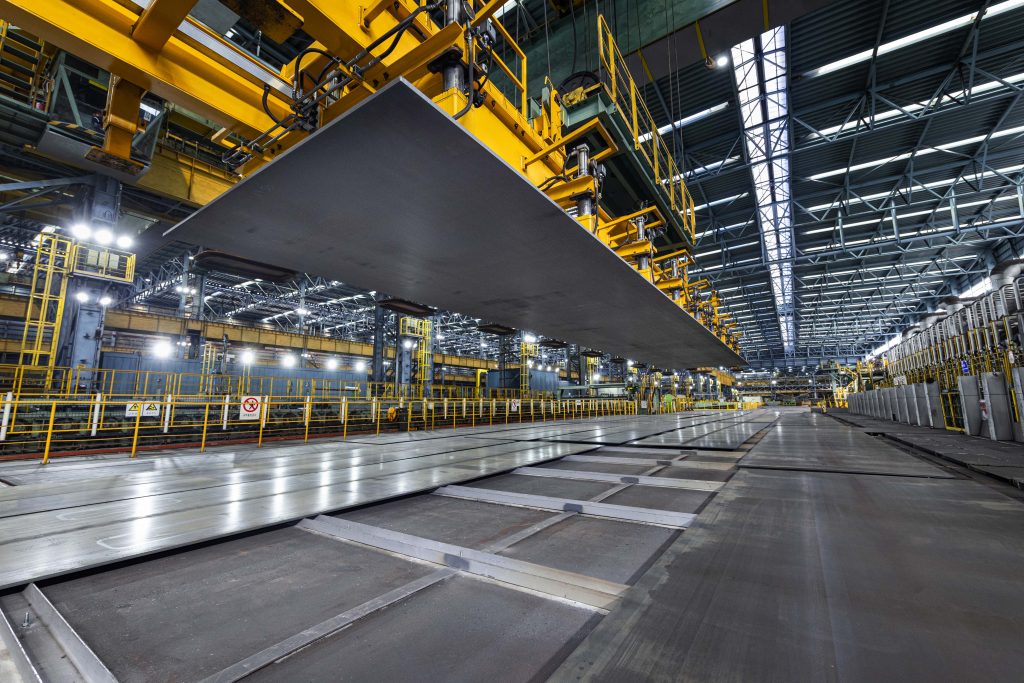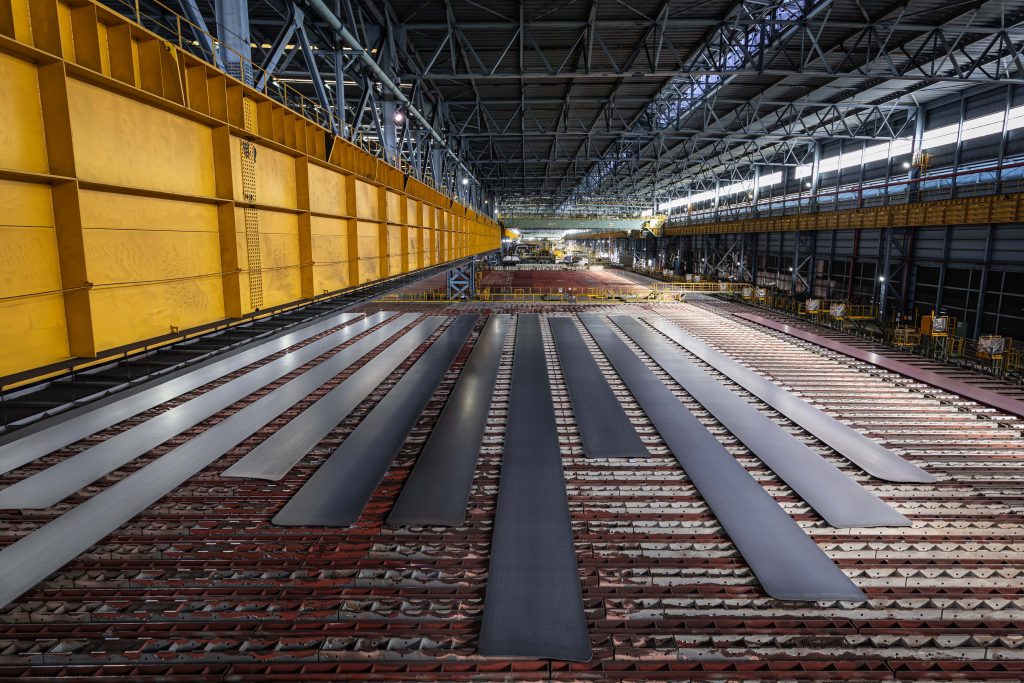POSCO and HD Hyundai Heavy Industries sign MOU to co-develop and apply advanced materials for next-generation naval vessels
Strengthening cooperation on POSCO’s proprietary high-manganese steel for lighter and stronger future warships
Synergy between K-Defense and K-Steel expected to improve competitiveness in the global defense industry market
POSCO’s high-manganese steel, developed for the first time in the world by the company, is being introduced as a new material for future high-tech defense applications. With this development, POSCO aims to strengthen its competitiveness in the global defense industry market. On May 28, POSCO and HD Hyundai Heavy Industries signed a memorandum of understanding (MOU) at the International Maritime Defense Industry Exhibition (MADEX), held at BEXCO in Busan. The agreement outlines cooperation for the development and real-world application of high-manganese steel as a material for future advanced naval vessels.
The MOU aims to conduct joint research to apply high-manganese steel—already in use in the civilian sector—to naval ship hulls for the first time. Through this initiative, POSCO plans to expand the application of high-manganese steel beyond its current use in LNG fuel tanks in the shipbuilding sector, and lead future market changes based on the technological capabilities of this independently developed material.
High-manganese steel, developed by POSCO, is a non-magnetic material that minimizes the need for demagnetization, a process traditionally required for naval vessels. This characteristic significantly improves survivability during mine laying and retrieval operations by reducing the risk of magnetic sea mine detonation. The steel also offers approximately 10% higher strength compared to conventional shipbuilding steel, so it is more resistant to external impacts and explosions. In addition, it is expected to contribute to hull weight reduction for improved overall vessel performance.
The successful commercialization of high-manganese steel reflects the strategic direction emphasized by POSCO Group Chairman In-Hwa Jang in strengthening fundamental competitiveness through technological advantages. Since his appointment as head of POSCO’s Steel Division in 2018, Chairman Jang has led efforts to improve competitiveness with the development of advanced steel materials, reinforced marketing strategies, and the expansion of POSCO’s global steel network.
The International Maritime Defense Industry Exhibition (MADEX), where the MOU was signed, is the largest naval defense exhibition in Korea. It brings together the Navy, the Defense Acquisition Program Administration (DAPA), as well as domestic and international shipbuilding and defense companies, and provides a platform to showcase the latest technologies and trends in the maritime defense sector.
In particular, POSCO and HD Hyundai Heavy Industries, which represent Korea’s steel and defense industries, respectively, formalized their intent to cooperate in front of naval officials, defense authorities, and global buyers. This event underscored their commitment to joint growth and technological collaboration, and highlighted the strategic synergy between the two sectors.
POSCO is also scheduled to present two technical papers at the Naval Ship Technology and Weapon Systems Seminar during MADEX. The presentations are on the “Development Status of New Materials to Improve Naval Survivability” and “Non-Magnetic High-Manganese Steel as a Hull Material for Special-Purpose Naval Vessels.”
A POSCO official said, “Based on our world-class steelmaking technology and extensive experience in material development, we have continuously developed a range of advanced materials, including non-magnetic high-manganese steel.” The official added, “Through this collaboration, we will deliver tangible outcomes such as improving the technological competitiveness of next-generation naval vessels, and we will continue to expand the development of innovative materials to support the advancement of the national defense industry.”
An official from HD Hyundai Heavy Industries said, “With this agreement, we plan to significantly improve the survivability of next-generation naval vessels, including mine-laying ships, mine countermeasure vessels, and unmanned surface vessels, by applying high-manganese steel. We will continue to pursue research and development for the application of advanced materials.”
Through this collaboration, the two companies expect to change the paradigm of domestic naval shipbuilding and further strengthen their competitiveness in the global maritime defense market. POSCO also plans to actively promote the use of high-manganese steel in naval hulls, as well as expand the packaging and marketing of steel solutions for maritime defense applications.

▲High-manganese steel plates stacked at the heavy plate mill.

▲High-manganese steel being transported using a vacuum suction crane.
